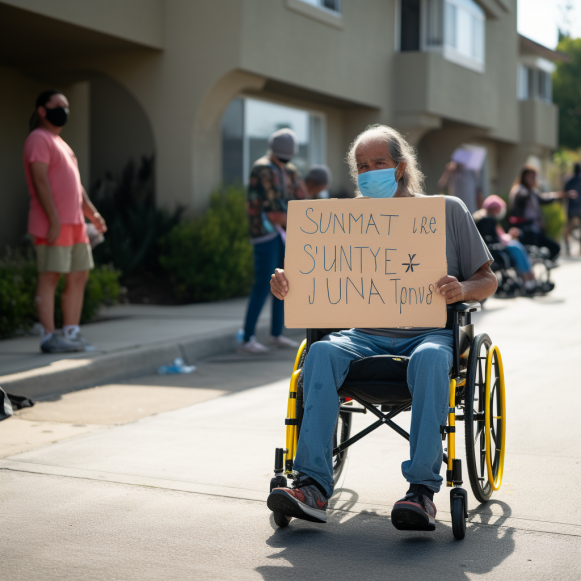Who is responsible for overseeing homeless housing in the Bay Area?

Safety and habitability issues at two of the Bay Area’s largest homeless housing sites raise oversight concerns
Mold, cockroaches, and security concerns at two of the Bay Area’s largest homeless housing sites in San Jose have raised concerns about oversight of the city’s most vulnerable residents.
As San Jose works to double its total homeless housing stock in order to address the crisis, who is responsible for ensuring that it is safe and habitable? Is there similar oversight in the rest of the Bay Area and California?
According to city and county officials, oversight efforts are shared among city and county agencies and nonprofits that own, operate, and invest in local sites. Local officials argue that the coordination, which extends to cities throughout the South Bay, distinguishes Santa Clara County and puts local governments in a better position to manage and regulate homeless housing.
Many homeless housing sites in California are also monitored by state regulators. Their responsibilities range from investigating self-reported issues raised by local governments to conducting routine site inspections and audits.
Although Santa Clara County’s collaborative approach is ahead of the curve, officials acknowledge that problems at local homeless shelters persist. They highlight issues such as the difficulty of maintaining aging buildings and the growing shortage of on-site case managers tasked with connecting residents to drug counseling, mental health care, and other services.
“The last few years have been backbreaking for providers, for local governments, for all of us trying to hold up the valley floor during this pandemic,” said Jen Loving, CEO of the South Bay nonprofit Destination: Home, which assists local cities in managing their homelessness response.
Officials say the problems are not limited to the South Bay and that local governments throughout the Bay Area must collaborate closely to end homelessness. According to estimates from earlier this year, there are approximately 38,000 people without a permanent home in the region on any given night. Despite unprecedented billions in homelessness spending in recent years, this represents a 35% increase from 2019.
“The needs of the people we serve are complex, and there are challenges that come with trying to solve a deeply rooted social and economic issue,” San Jose said in a statement. “These complexities require constant coordination and a system-wide response.”
As the local homeless population has grown in recent years, cities ranging from Oakland and Berkeley to Santa Clara and Redwood City have pushed to build thousands of new unsheltered housing units.
San Jose has funded at least 700 long-term or temporary homeless housing units. It plans to add at least 400 more units in converted motels and new structures over the next year, as well as around 1,000 tiny homes and prefabricated cabins for short-term stays.
Officials at the state level have authority over state-funded sites. However, the level of supervision varies.
Officials said that for facilities supported by state loan programs, regulators oversee operating budgets, rental income schedules, audited financial statements, reserve account monitoring, and routine site visits. However, for the nearly 13,000 units funded by the state’s $3.75 billion Homekey grant program, regulators rely primarily on self-reported data from cities, counties, and nonprofits.
Meanwhile, San Jose officials said their oversight of the sites is largely dependent on whether the city owns them.
Officials said they make regular visits to a converted motel owned by the city north of downtown for maintenance checks and hold weekly meetings with the site’s nonprofit service provider. Nonetheless, the site, which the city received a $12 million state grant to purchase in 2020, has been plagued by mold, pests, and other damage.
Crews are working to quickly resolve the habitability issues, which have been documented in city code enforcement reports, according to officials. The city agreed to turn over the former Best Western SureStay property to the Santa Clara County Housing Authority by the end of the year after admitting it was ill-equipped to manage it.
Officials said they are not responsible for day-to-day operations at sites that the city does not own but has invested in, such as the struggling Second Street Studios complex near the Spartan Keyes neighborhood. They do, however, conduct onsite inspections on occasion and meet with the building owners and operators in charge.
Officials have documented issues with safety, habitability, and safety at the Second Street Studios site, where residents pay rent and can stay indefinitely. Officials from the city said they are working closely with the building’s nonprofit owner, San Jose-based First Community Housing, to resolve the issues. According to city documents, the city has loaned the developer approximately $37.5 million to finance the 135-unit property.
The city does not regulate sites in which it does not own or invest.According to officials, the city intends to own only short-term “transitional” housing in the future, such as the 1,000 tiny homes.






